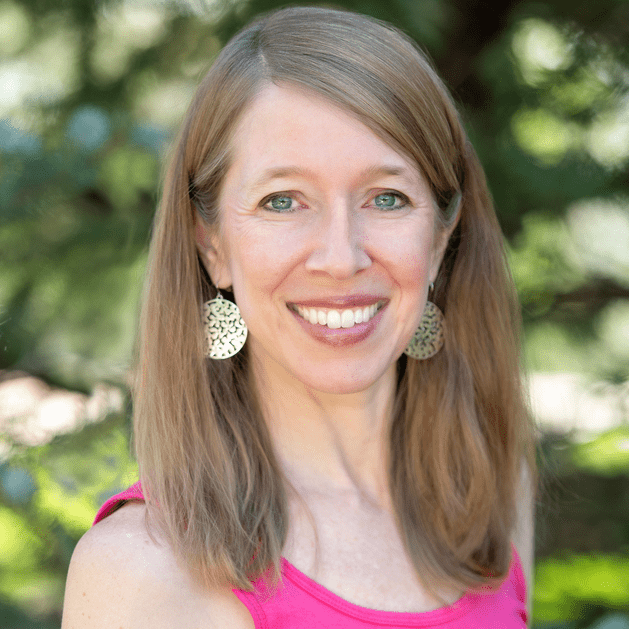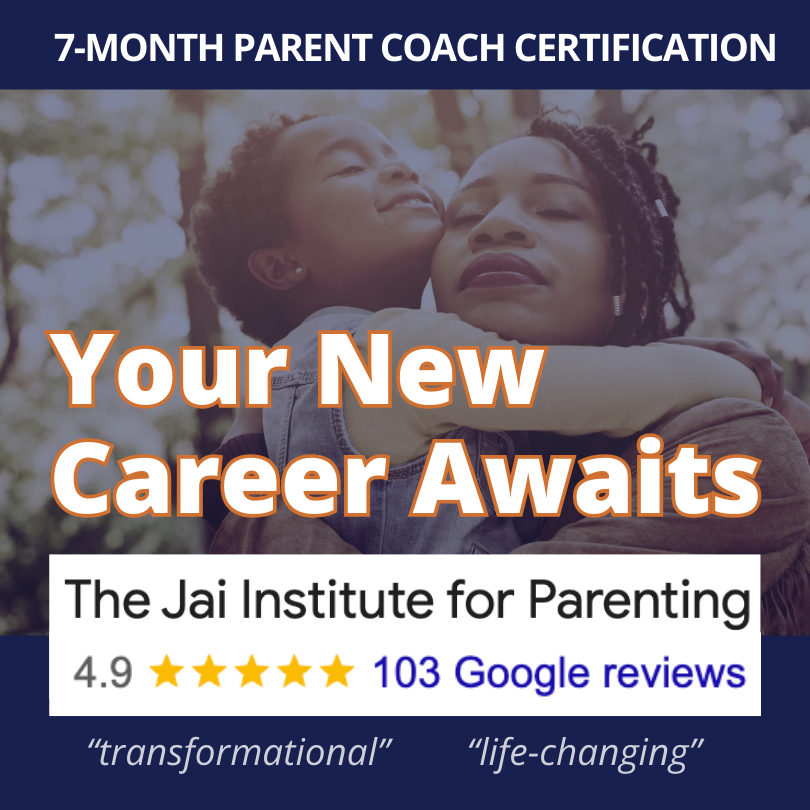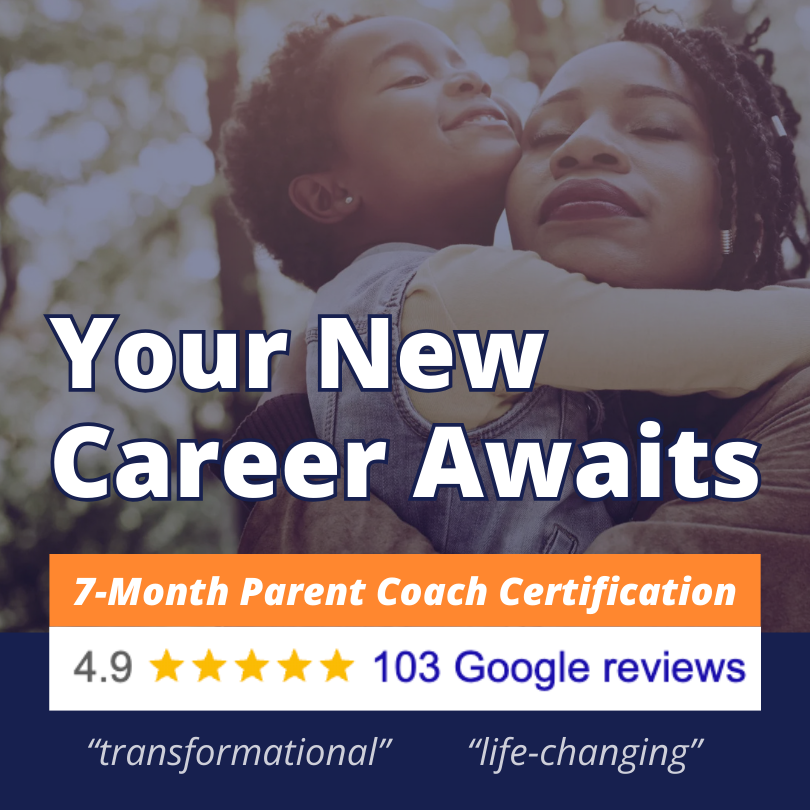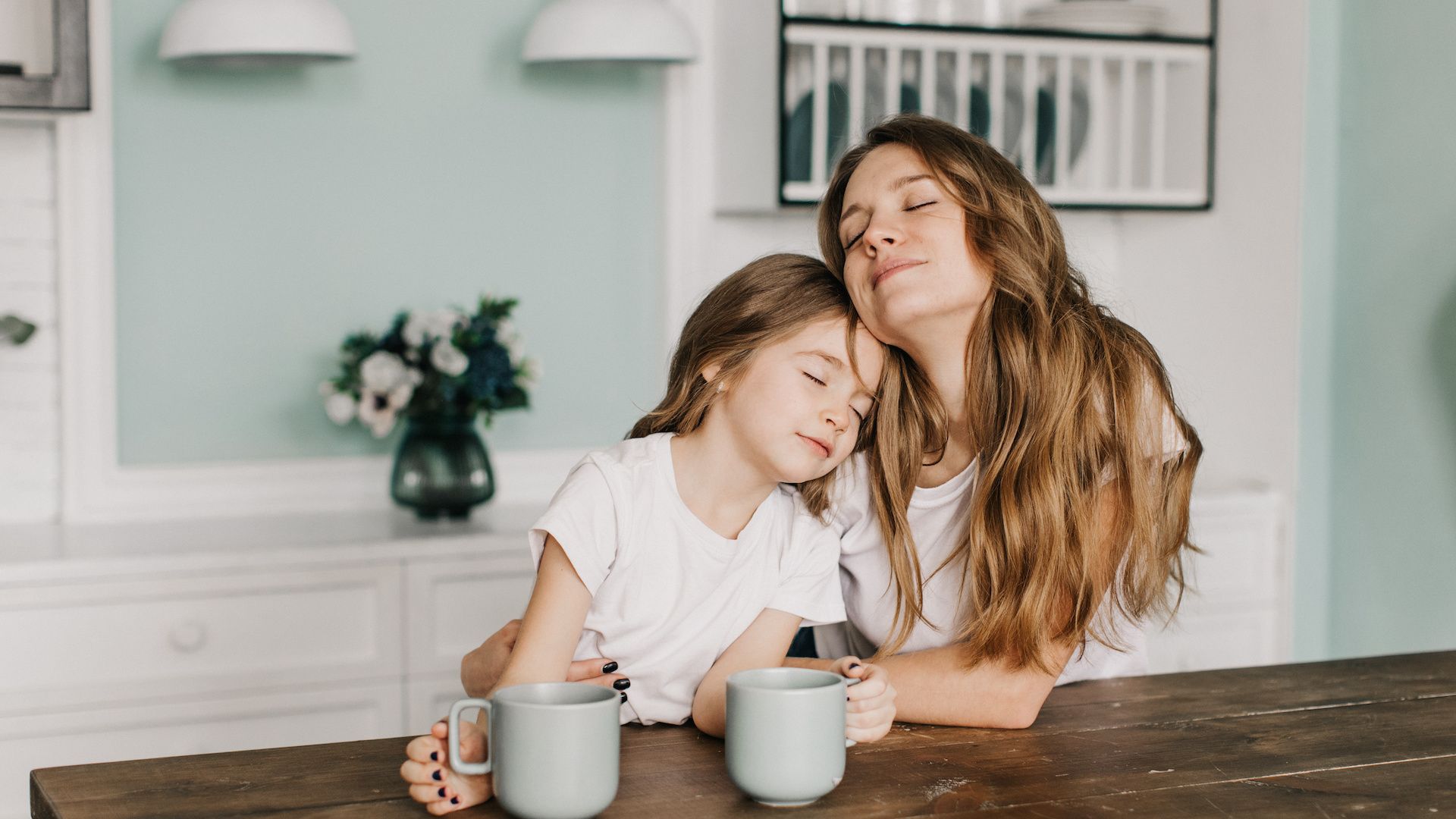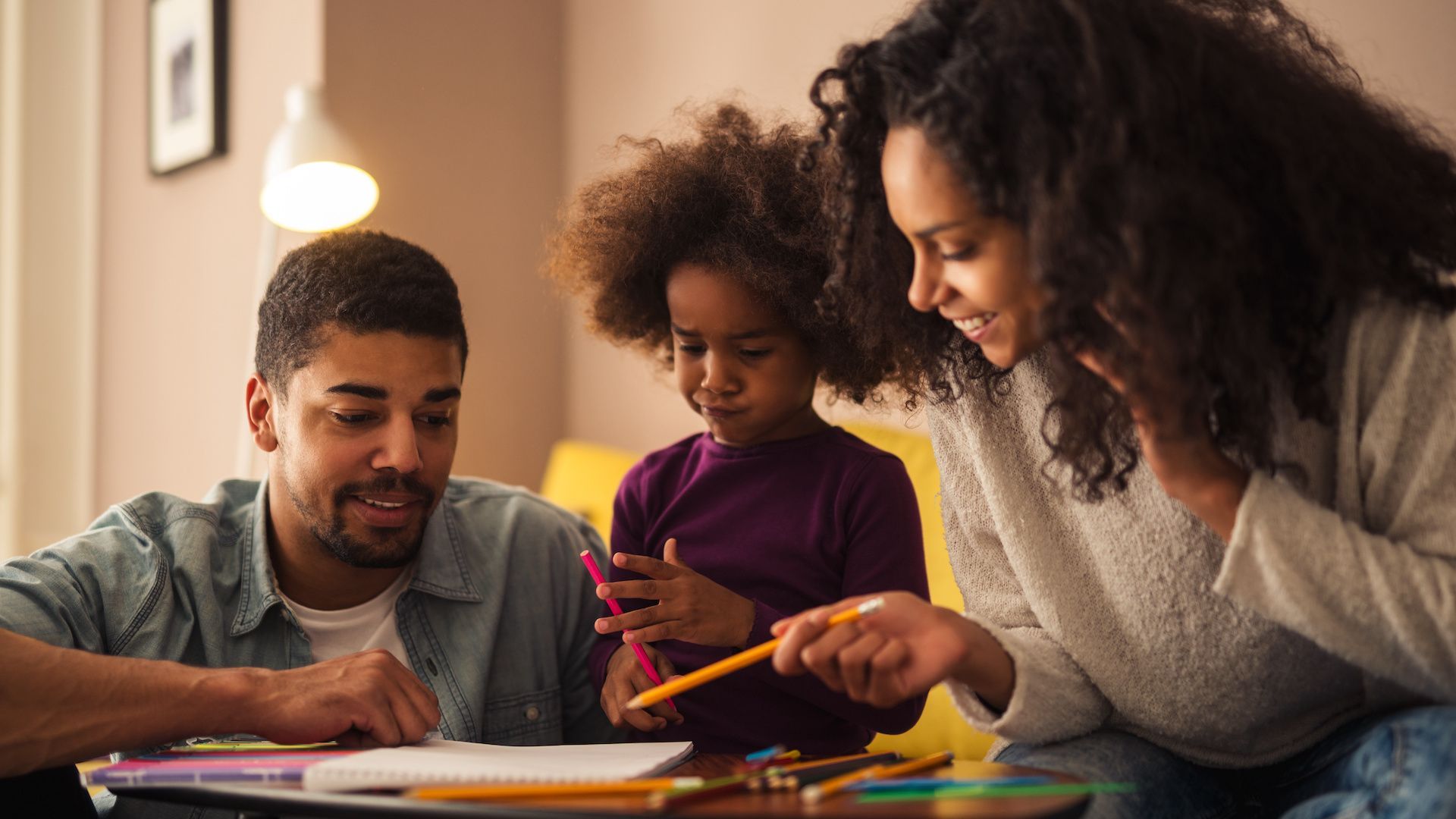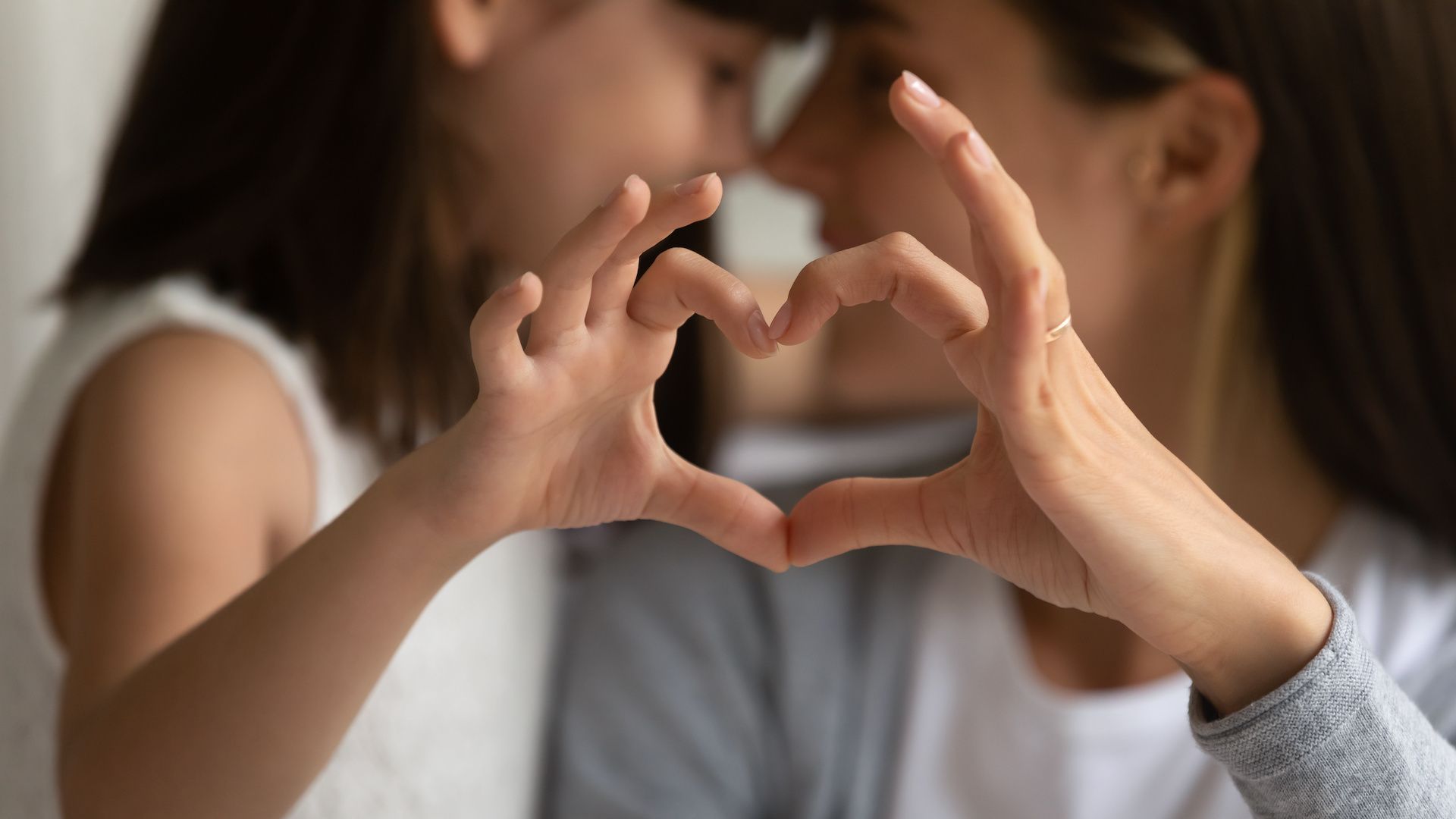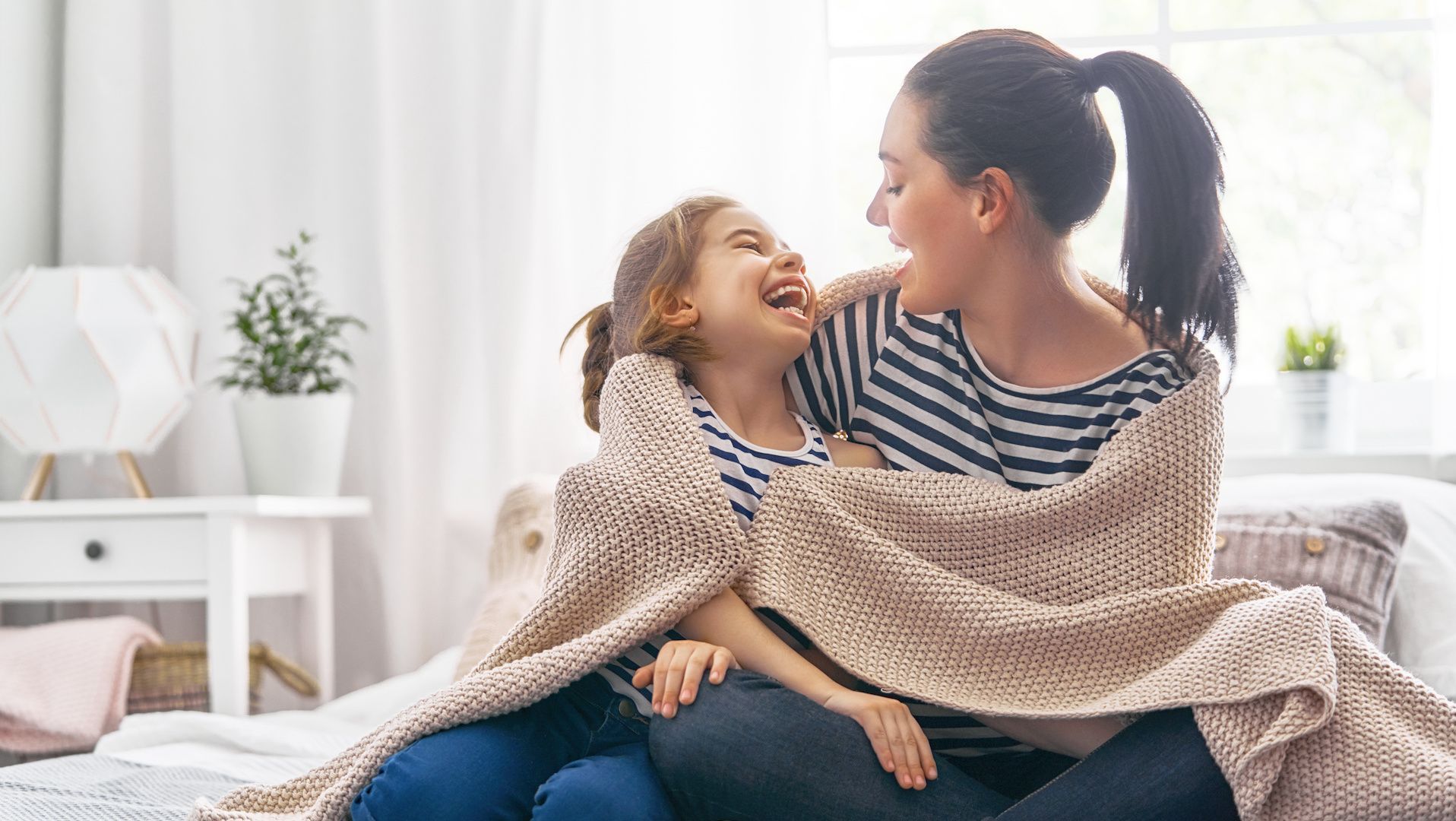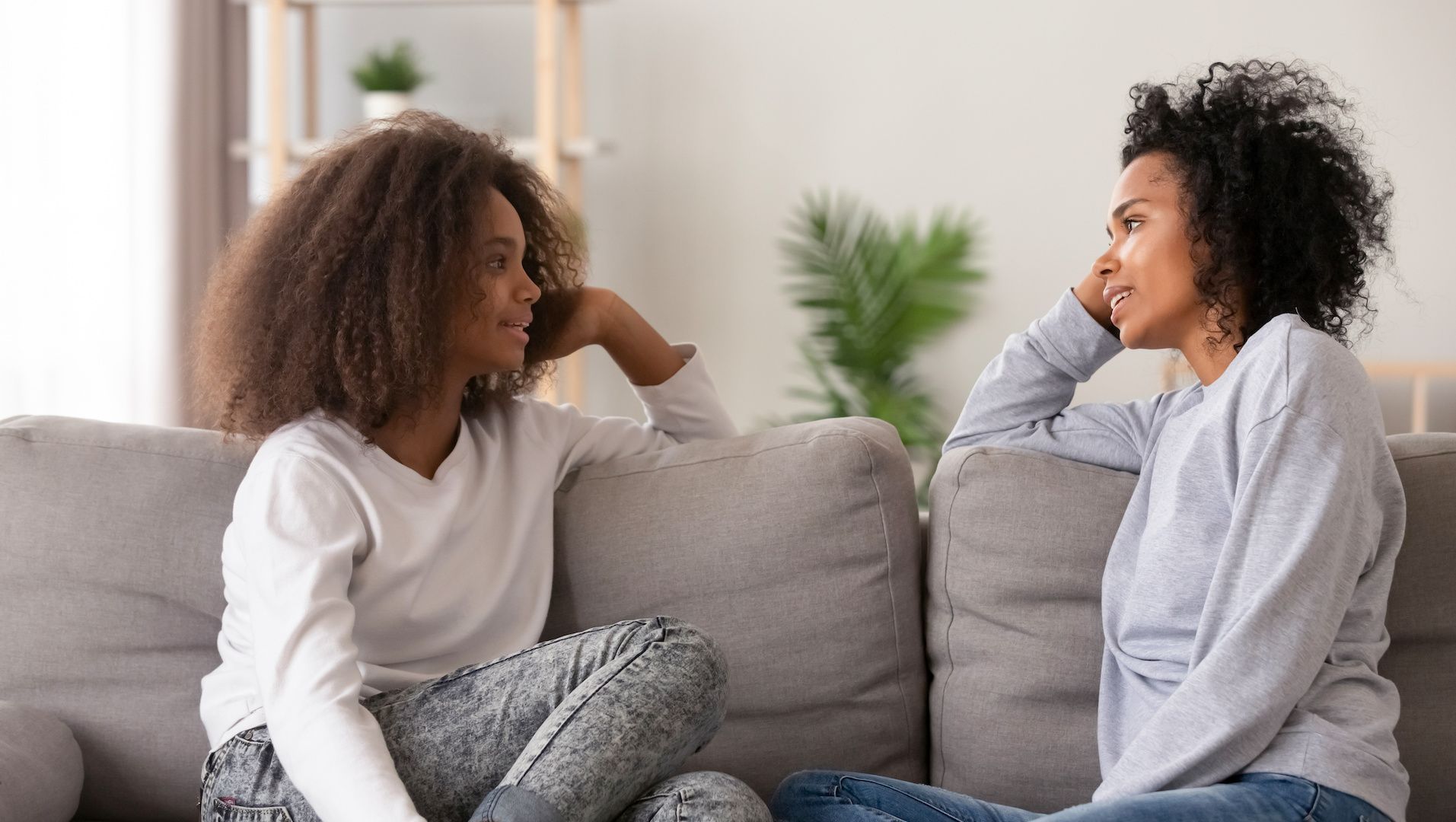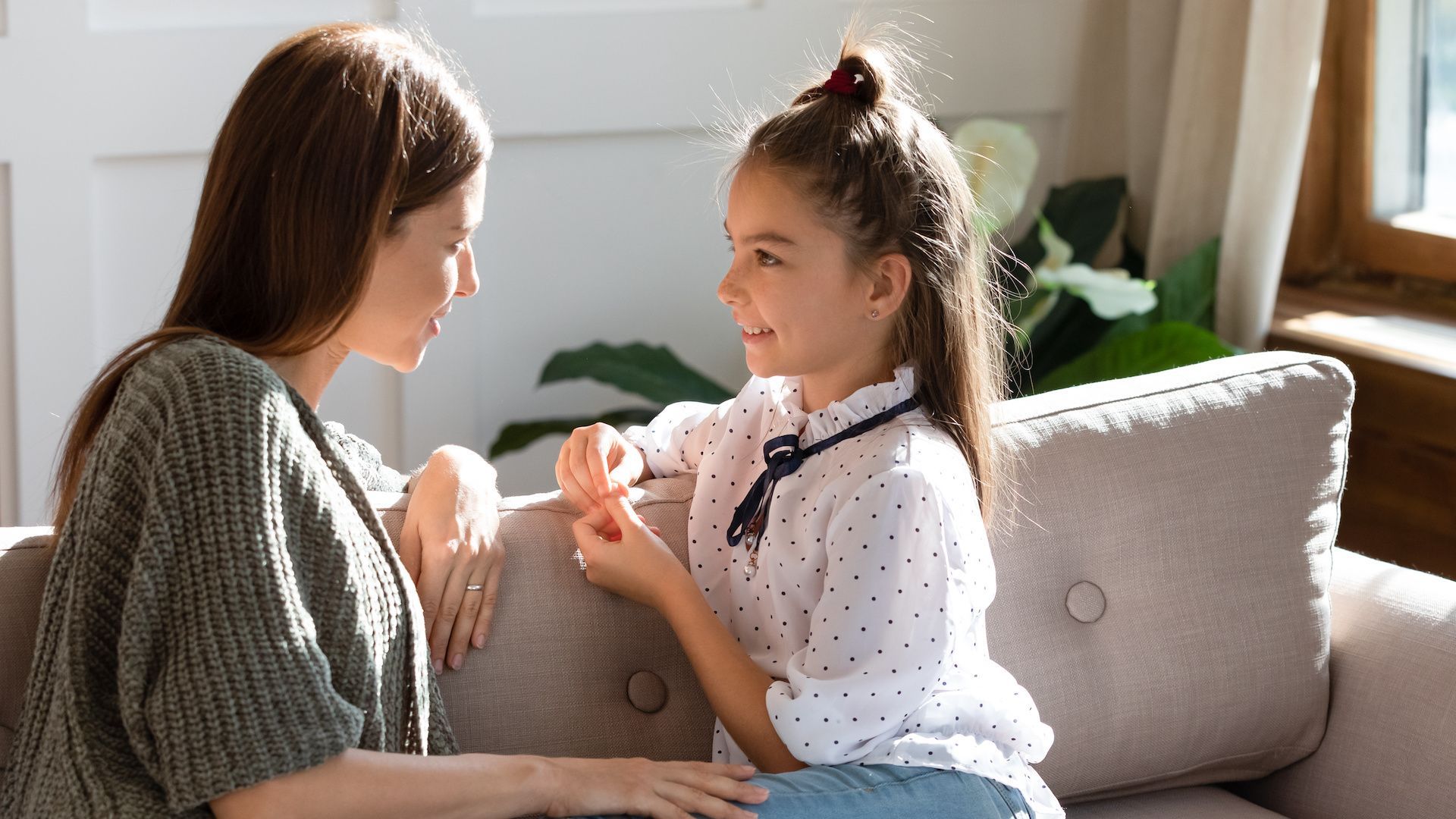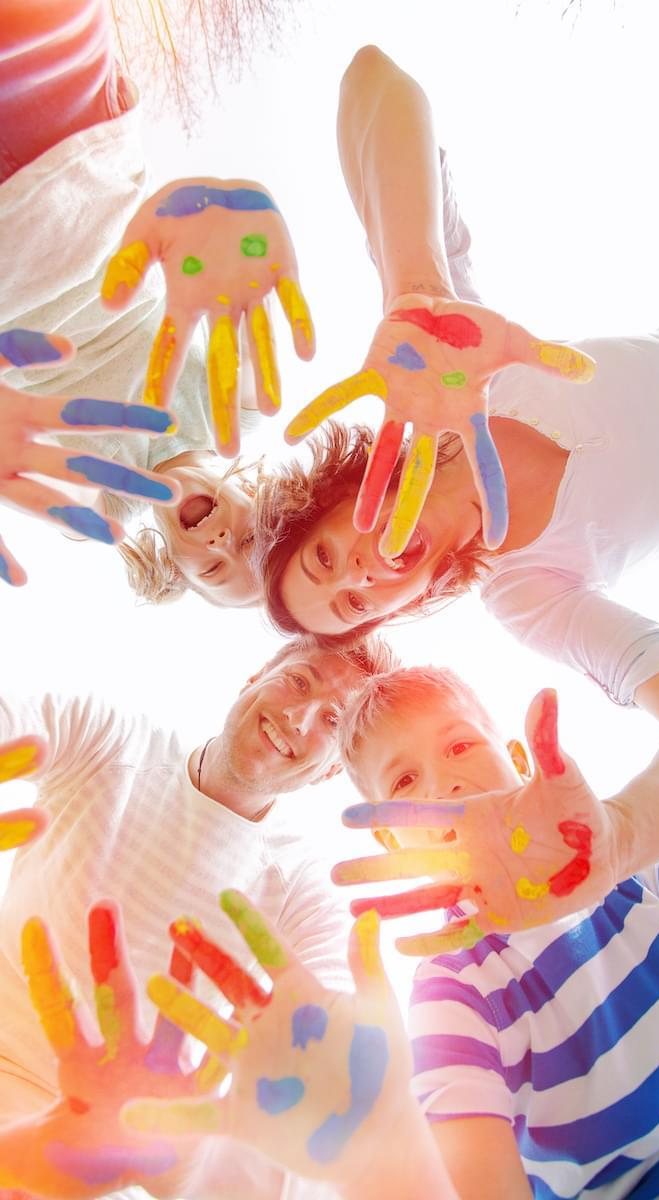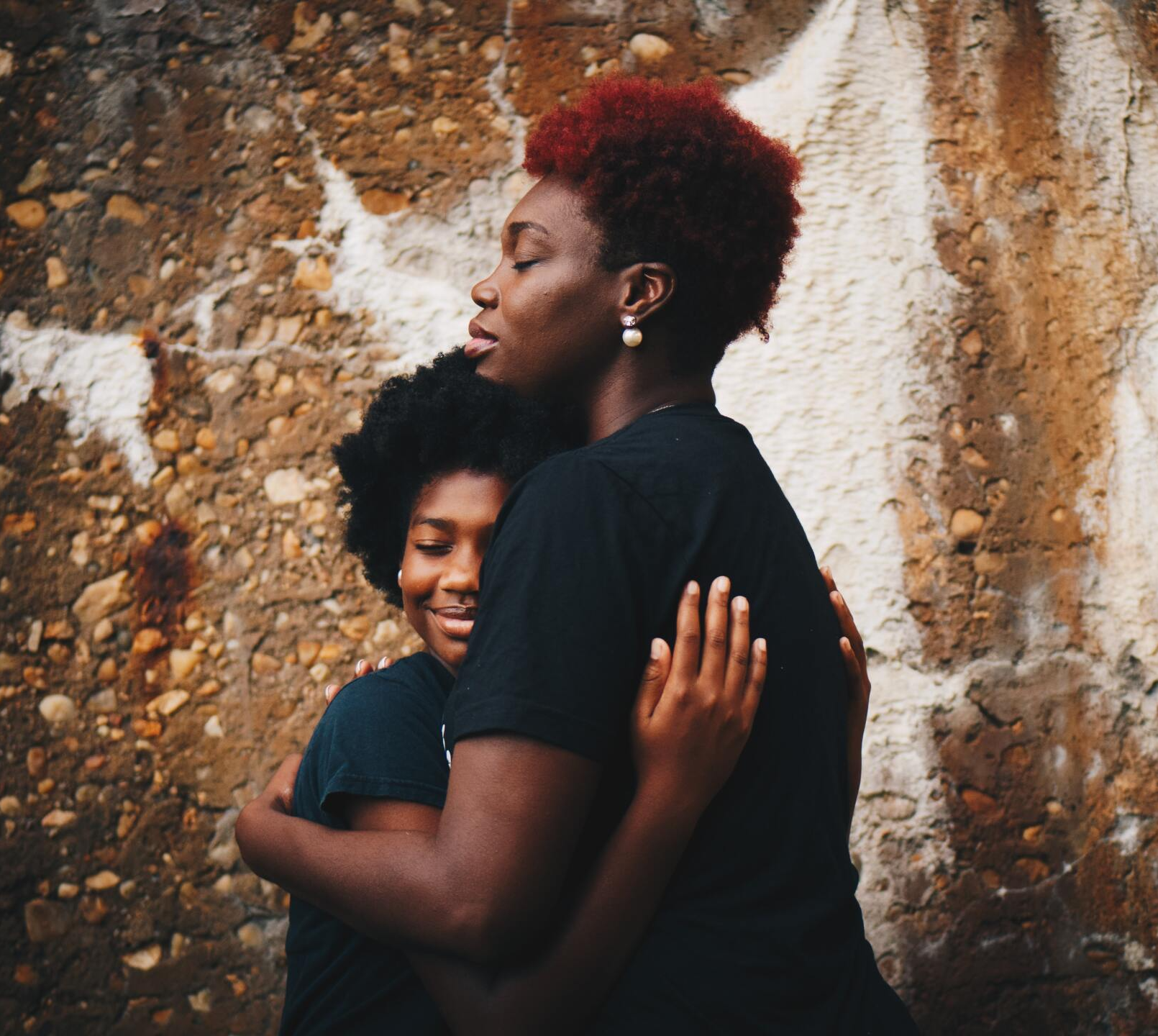6 Ways to Become a More Peaceful Parent

Many parents, before having children, worry about how difficult giving birth might be. What most say years later, though, is that actually raising a child is significantly harder. Of course that’s obvious now that the child has been born, but sometimes it still hits us like an epiphany.
Parenting may feel difficult especially if we want to be peaceful parents–and even more so if we’re breaking cycles to do so. We may wonder if it’s ever going to get easier. We can’t necessarily just wing it and perpetuate the patterns with which we were raised. Many of us want something better for our children.
Naturally, being a peaceful parent sounds like a lovely goal to which all humans raising other humans should ascribe. The truth is, though, that all humans experience conflict sometimes. Let’s begin by normalizing that it’s hard to experience conflict and feel peaceful simultaneously. It doesn’t usually feel possible (more on that later).
Why is this?
To state the obvious, parenting is a lifetime commitment. Because we’re going to be around our children so much of the time, we’re going to see all of each other’s strengths… and, of course, we’ll also be privy to each others’ complete emotional messiness.
Acknowledging this messiness, we may wonder how to be a more peaceful parent more of the time. Is it even possible?
Let’s begin by unpacking what peaceful parenting means (and what it doesn’t mean), and then we’ll discuss how to achieve it.
What is peaceful parenting?
First, what it isn’t:
- It is not “perfect” parenting. (That doesn’t exist.)
- It is not a parent who never loses their cool.
- It is not a parent who never raises their voice.
- It is not a parent who has perfect control over every situation 100% of the time.
- It is not a parent who’s fully healed from their childhood wounds.
- It is not a parent who “has it all together.”
Next, what it is:
- It’s a parent who models being human, along with all the bumps that come with that.
- It’s a parent who occasionally loses their cool, but knows how to apologize and make amends when necessary.
- It’s a parent who models self-regulation and doesn’t “fly off the handle” excessively.
- It’s a parent who embraces uncertainty and grows alongside their child.
- It’s a parent who’s aware of their childhood wounds and willing to do the work to heal from them.
- It’s a parent who accepts that they don’t have all the answers about parenting and realizes the best teacher is the child in front of them.
What is peaceful parenting in a nutshell?
In short, it refers to the parent who’s committed to learning and growing alongside their child—with the good of the relationship in mind.
How can I be a more peaceful parent?
Day-to-day, the first thing we need to do is be aware of where we’re already peaceful, and then look for the areas where we want to improve.
Here are five more things you can do to be a more peaceful parent:
1. Practice self-care
One of the most important things we can do as parents is to take care of ourselves. When we are stressed, tired, or overwhelmed, it's challenging to remain calm and patient with our children. Self-care can take many forms, such as exercise, meditation, spending time with friends, or pursuing a hobby you enjoy. Taking time for yourself is not selfish; it's necessary for your mental and emotional well-being, which will ultimately benefit your family.
2. Be intentional about creating more positive moments together
Connection doesn’t happen automatically, unfortunately. We need to be intentional about it. What this means is that we need to proactively plan more time in the “positive” area where we’re doing things together that we both enjoy, and less time in the area of “things to work on.” That may literally mean changing daily patterns to intentionally create more times of emotional peace during the day.
3. Communicate effectively
Effective communication is critical in any relationship, and it's especially important in parent-child relationships. Communication involves both talking and listening. When communicating with your children, be clear, respectful, and patient. Listen to their thoughts and feelings, and acknowledge their perspective. When conflicts arise, take the time to understand the situation and work together to find a solution that works for everyone. Work toward “win/win” results rather than having one person feel they “won” an argument.
4. Use peaceful discipline
Discipline is an essential part of parenting, but it's important to use positive discipline techniques rather than punishment or shaming. Positive discipline focuses on teaching children appropriate behavior, rather than punishing them for their mistakes. We can teach through play, stories, and open discussions, rather than punitive methods that often backfire and harm the relationship.
If discipline is an area that you and your family are struggling with, check out our resources on how to help families reduce spanking their homes or the effects of yelling on children.
5. Model positive behavior
Children learn by watching and imitating the behavior of those around them, especially their parents. As a parent, it's essential to model positive behavior and demonstrate the values you want your children to learn. This includes being kind, respectful, and patient with others. It also involves taking responsibility for your actions, admitting when you make mistakes, and apologizing when necessary. By modeling positive behavior, you can help your children develop positive habits and attitudes.
6. Take time to connect
It's easy to get caught up in the daily routines and tasks of parenting, but it's essential to take time to connect with your children. This can involve short bursts of play or time together – from that five-minute story you read – to longer family holidays together. In truth, children need both from us. They crave that spur-of-the-moment-snuggle-on-your-lap love. They also want to know that they’re worth our time off work to spend with them. It all matters.
It differs slightly from being intentional about creating more positive moments together insofar as this is less about changing daily patterns, and more of a long-term view of parenting, keeping the big picture in mind.
Besides these steps, how can I start becoming more peaceful?
There’s no “one right way” to get started. If you want to know how to be a peaceful parent, simply making the decision to become one is an incredible first step. From there, you might opt to do one or more of the following:
- Read books about peaceful parenting, discipline that does no harm, and other similar topics
- Follow reputable leaders on social medial who can give you reminders of how to connect with your children and teach in non-punitive ways
- Unfollow social media “leaders” and others who perpetuate the myth that we need to punish our kids; they’re not serving your relationships
- Take a class on peaceful discipline
- Consider becoming a
peaceful parenting coach, even if you’re not a “perfect” parent yet (spoiler alert: we learn best by doing, and no parent in the world is perfect!)
How can conflict and peace coexist together?
Although it may feel counterintuitive, they coexist all the time–because you have only one body with lots of feelings ready to express themselves at any given time.
Once again, the point isn’t to be a perfect parent – it’s how to communicate through warmth and connection, and from a place of self-awareness regardless of what’s going on around you. That is its own sense of peace, and with practice, it’s absolutely possible.
Meet Your Author, Sarah R. Moore
Sarah R. Moore is the author of Peaceful Discipline: Story Teaching, Brain Science & Better Behavior, the founder of Dandelion Seeds Positive Parenting, and a Master Trainer for the Jai Institute for Parenting. She's a public speaker, armchair neuroscientist, and most importantly, a Mama. She's a lifelong learner with training in child development, trauma recovery, interpersonal neurobiology, and improv comedy. She helps bring JOY, EASE, and CONNECTION back to families around the globe. Her work has been featured internationally in print, online, on the radio, and on TV. Follow her on Instagram, Facebook, YouTube, TikTok, Pinterest & Twitter.
READ MORE:
Curious for more?


